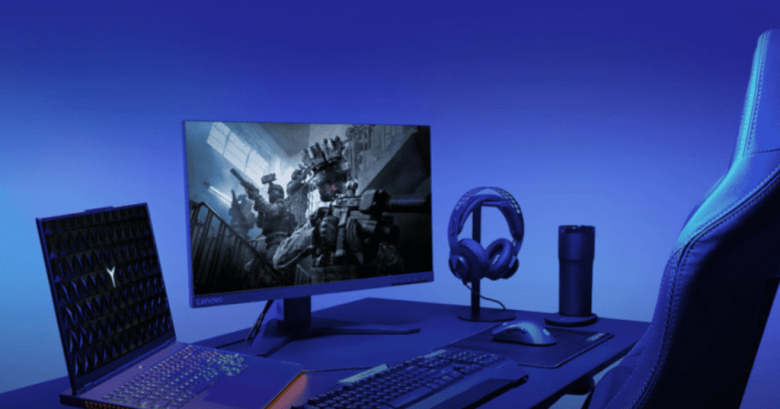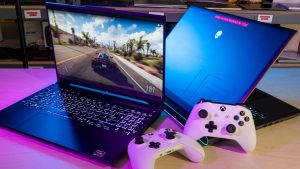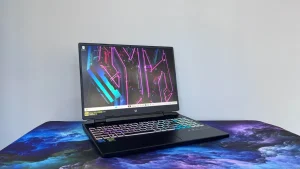Gamers continue to edge the debate between gaming laptops and gaming PCs. Viewed as two platforms or systems for hardcore gaming, these two systems are designed for high performance, but their usability, functionality, and costs will clear distinction between them. Since e-games and the AAA games market are some of the fastest-growing, performance devices are in demand like never before. For gamers at the conundrum of what to buy – the laptop or the desktop, the information on the pros and cons of each platform may help in making the right choice for him or her.
Performance Comparison
PC gaming is unrivaled in terms of raw processing power and graphical capabilities. Equipped with powerful processors and graphical powerhouses called graphics cards, they can very easily handle high resolutions, high frame rates, and high levels of toggling between tasks, even more easily than most gaming laptops would. That’s because desktops possess large components, which are space constraints in laptops, as well as advanced cooling devices allowing for efficiency and performance whilst playing games for long hours.
In contrast, gaming laptops have come a long way and are now able to provide performance on par with a desktop computer. Popular companies like NVIDIA and AMD are offering laptop-specific GPU solutions, and other motherboards integrated with excellent processors and solid-state drives (SSDs) for effective gaming are also becoming common in laptops. Nevertheless, due to their lower form factor, gaming laptops still struggle with cooling and heat dissipation to some extent, which may slightly reduce their efficiency in long-term use when compared to desktop computers.
Another very important consideration is upgradability. This is where the desktop PC excels, as users can simply remove the old hardware and replace it with new ones since they are not attached to the motherboard. Gaming laptops, however, have lower upgradability since they are usually sold in specific pre-configured units, which makes it harder for people to keep up with technological advancements.
Portability vs. Power
Gaming laptops’ portability is the major difference between them and desktops. The primary selling point in this case is how portable a gaming laptop can be. For gamers who are very regularly on the move, intending to attend LAN parties, or simply want to game in different locations, laptops are an excellent choice. Nowadays, people looking to buy gaming laptops can find that they now include high refresh rate screens and surprisingly good battery life for gaming on the move.
However, a drawback of gaming desktops is that they are not portable since they are tailored for stationary setups with external monitors, keyboards, and other peripherals. At first glance, this may appear to be a disadvantage concerning the gaming desktop, but it allows for the provision of greater performance and intense gaming. Graphical superiority, such as 4K gaming or virtual reality systems, is described as immersive, so enthusiasts in this field will likely pick desktops since they are more efficient and economical in terms of the power they can provide considering the price.
Cost Analysis
When considering the cost of gaming laptops vis-à-vis gaming desktop PCs, the one-off payment as well as the subsequent recurrent expenditure should be considered. Most were willing to pay a higher initial cost to reap the benefits that gaming laptops had because they are compact and have integrated components. A conventional gaming laptop that possesses powerful graphics chips, an elaborate cooling system, and a high-quality screen can cost well over $2000.
Desktops, or desktop PCs, provide better performance for a lesser price than a similar gaming laptop, but such PCs need to have a monitor, keyboard, mouse, and more speakers, which will cost more. In the end, the cost may be close to the cost of a gaming laptop. Nonetheless, it has been shown that desktops have more longevity compared to the long time since they are customizable, allowing gamers to upgrade their devices in turn not need to incur the cost of buying a new desktop.
There are also concerns regarding the maintenance of the gaming laptops, which may involve repair of overheating and battery problems that might be a limitation to their overall cost in the future. However, the maintenance cost for desktops is generally low because other parts can be replaced as necessary at lower costs.
Trends and Innovations
Gaming technologies are advancing with speed and initiating cool new features in both types of platforms. In fact, in terms of desktop personal video game computers, the Compact Gaming Systems (CGS), the small form factor PC, for instance, is a good candidate for seeking the right balance between optimal power and portability. Other enthusiasts are also gravitating towards fusion liquid cooling systems and RGB-filled builds.
About gaming laptops, ultrathin designs have become the norm, and, unlike other manufacturers, these laptops still retain a lot of power. This change has made it possible for elements such as 240Hz displays and keys per RGB keyboard to be readily available. The emphasis, however, has now also been directed towards the improvement of battery duration and incorporating technologies like NVIDIA DLSS and AMD FSR, which are designed to increase the efficiency and quality of the gameplay.
There has also been a rise in the use of NVIDIA GeForce Now or Microsoft’s Xbox Cloud Gaming, which allows gamers to play robust titles while streaming from the servers on low-spec devices. It is not making powerful gaming devices obsolete yet; however, it does have the potential to change the laptop and desktop gaming experience entirely.
Future Outlook
In the future, the face and future of gaming hardware appear to be gradually changing as gaming laptops and desktops switch up their game. Gaming laptops will most likely come in smaller sizes while packing in more power thanks to even better cooling systems. When it comes to desktop PCs, they might most likely be more modular and provide greater capability for assembling as well as upgrading.
Other experts are embracing a hybrid model, where all platforms will be merged into one that instills the portability of a laptop with the power of a desktop. Also, the further development of VR, AR, and the cultivation of cloud gaming technologies may change the nature of gaming hardware forever.
Making the Right Choice for You
In the end, the question of which to choose—a gaming laptop or desktop PC—often depends on the games you play, the way you live, and your pockets. For those who are performance-focused and the longevity of the device with customizability is a necessity, then a desktop PC is the way to go. For those who are more oriented towards convenience, mobility, and space-saving designs, a gaming laptop will be a suitable option.
Whichever you decide, both systems have the enhancement needed to provide a great gaming experience. As long as careful attention is paid to your wishes and the investigation of current trends is carried out, the ideal gaming partner will be at hand to take its interesting gaming experiences a notch higher.
FAQs
1. Which is more economical in the long run, a gaming laptop or a desktop PC?
Desktop PC is economical in the long run since it’s more upgradable and one can opt to buy parts bit by bit and do gradual updates rather than bulk updates of the entire PC.
2. Can gaming laptops play AAA games?
Yes, most modern gaming laptops are fitted with great GPUs and processors that are capable of playing AAA games without any floppers.
3. Are desktops more suitable for 4K gaming and VR?
Yes, desktops are more useful for 4K gaming and VR since they come with more power needed to run great graphics cards.
4. What are the main procedures for upkeep of gaming laptops?
Gaming laptop maintenance mostly involves dusting them, keeping them within certain temperature ranges, and focusing on the battery’s health.
5. Is it worth buying a gaming laptop for non-game purposes as well?
Yes, even when not in action, gaming laptops have the power to perform heavy tasks such as video editing, 3D rendering, or graphic designing, so they have applications beyond just gaming.



